Turtles have long held significant roles in faith and feng shui. Alongside the dragon, unicorn, and phoenix, turtles, or Quy, are considered one of the four sacred creatures guarding the four directions. Today, let’s explore the meaning of this auspicious animal.
1 What is a Feng Shui Turtle?
A Feng Shui Turtle is believed to ward off negative energies and bring good fortune to its owner. Unlike mythical creatures like dragons or phoenixes, turtles are real-life creatures that symbolize slow and steady progress, bringing peace and harmony to your home.
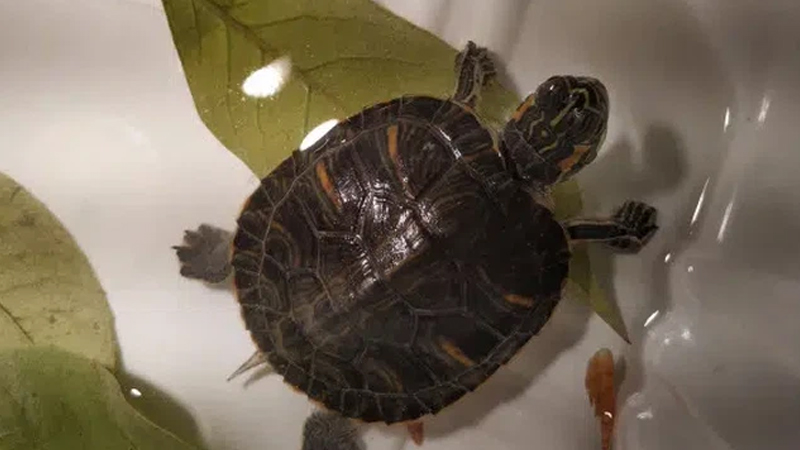 Feng Shui Turtles are believed to bring good fortune and ward off negative energies.
Feng Shui Turtles are believed to bring good fortune and ward off negative energies.
2 Is Keeping a Turtle at Home Lucky or Unlucky?
Keeping a turtle at home is considered very auspicious. It is believed to attract positive energy, good health, luck, career success, and wealth for the owner. Additionally, turtles symbolize longevity, making them ideal for households with elderly or frequently ill family members. You can definitely keep a turtle as a pet, but ensure you’re committed to its care.
 Keeping a turtle at home is generally considered auspicious.
Keeping a turtle at home is generally considered auspicious.
3 What Does It Mean When a Turtle Enters Your House?
When a turtle enters your house or is gifted to you, it signifies good fortune, bringing positive energy to your health, luck, career, and wealth. Take it as a sign to embrace and care for these wonderful creatures.
 A turtle entering your house is considered a positive omen.
A turtle entering your house is considered a positive omen.
4 Which Ages are Suitable for Keeping Turtles?
According to feng shui experts, people born in the years of the Dragon, Snake, Rooster, and Tiger are well-suited to keeping turtles. Additionally, in the Yin-Yang Five Elements theory, turtles (Quy) belong to the Fire element, so keeping a turtle can be seen as nourishing “Fire,” which brings good fortune and protects against illness, evil spirits, and harm from others.
Furthermore, people with Earth as their birth element also benefit from keeping turtles, as “Fire” gives birth to “Earth,” potentially bringing wealth through real estate and property investments.
 According to the Five Elements theory, turtles (Quy) belong to the Fire element.
According to the Five Elements theory, turtles (Quy) belong to the Fire element.
5 Which Ages Should Avoid Keeping Turtles?
Since turtles represent “Fire,” and “Fire” clashes with “Metal,” people with Metal as their birth element are advised against keeping turtles as it may negatively impact their fortune.
 People with Metal as their birth element are believed to be incompatible with keeping turtles due to the clash between Fire and Metal.
People with Metal as their birth element are believed to be incompatible with keeping turtles due to the clash between Fire and Metal.
6 What if My Turtle Dies? Is Eating Turtle Meat Unlucky?
Some people worry about the death of their pet turtles. However, it is believed that if a turtle passes away, it has taken on the family’s misfortune. Nonetheless, do not eat the turtle meat as it is considered bad karma and goes against the principles of feng shui. Instead, bury the turtle with care.
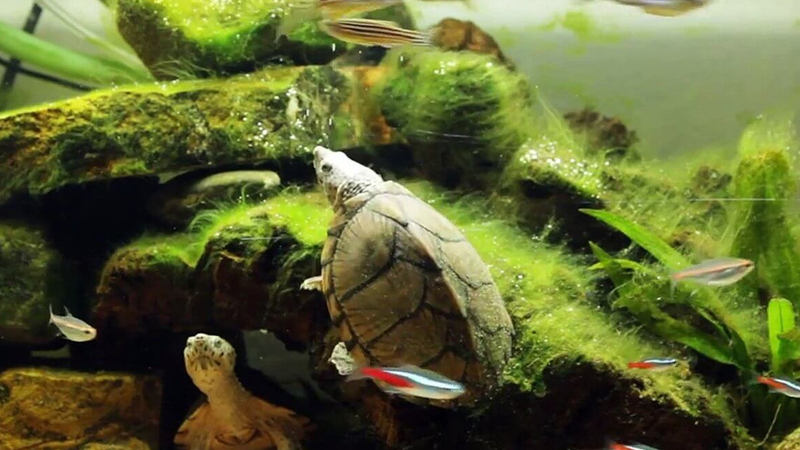 If a turtle passes away, it is believed to have taken on the family’s misfortune.
If a turtle passes away, it is believed to have taken on the family’s misfortune.
7 Guidelines for Keeping a Feng Shui Turtle
There are two main types of turtles: terrestrial turtles and aquatic turtles. Depending on your circumstances, you can choose the type of turtle that suits you best. Turtles are resilient and can survive without food for 3 to 6 months.
In reality, terrestrial turtles are herbivores (eating fruits and vegetables), while aquatic turtles are omnivores, consuming a variety of foods. Here’s how to care for these two main types of turtles:
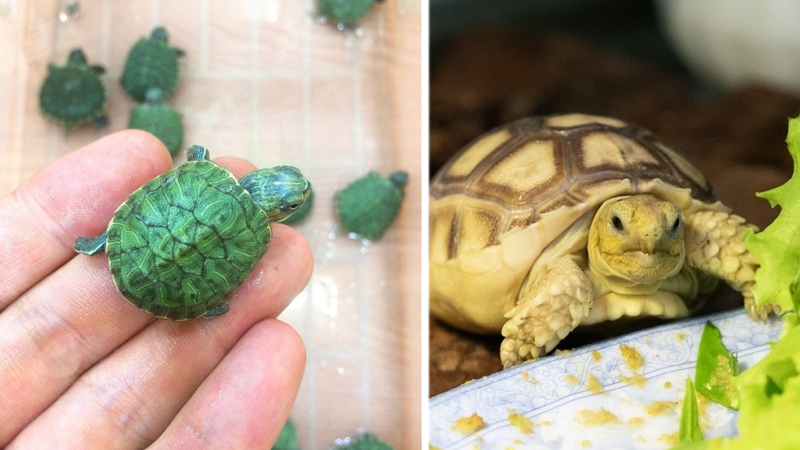 Aquatic turtle (left) and terrestrial turtle (right)
Aquatic turtle (left) and terrestrial turtle (right)
Caring for Terrestrial Turtles
Terrestrial turtles like the sulcata tortoise, Indian star tortoise, and Russian tortoise can be found at various mini turtle shops in Ho Chi Minh City, Hanoi, and Haiphong.
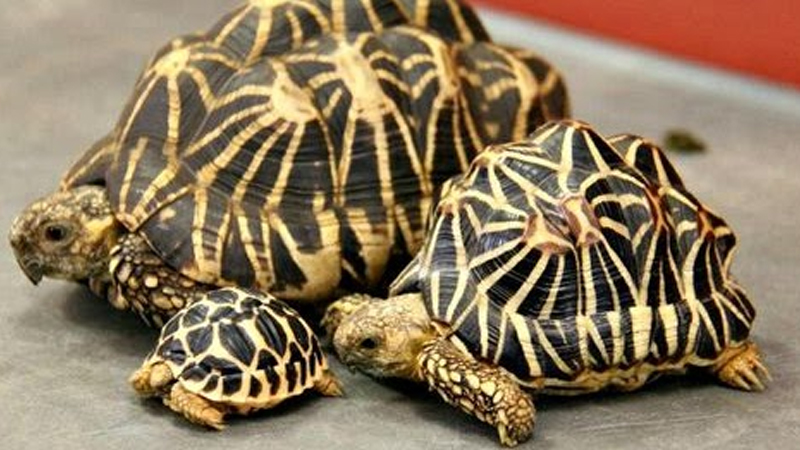 Indian Star Tortoise
Indian Star Tortoise
Terrestrial turtles grow slower than aquatic turtles. Generally, the cost of keeping a terrestrial turtle is higher than that of an aquatic turtle, but they make excellent pets. Their lifespan typically ranges from 30 to 70 years.
You can keep them in plastic tubs or cement tanks, but as they grow, you’ll need to adjust their enclosure accordingly.
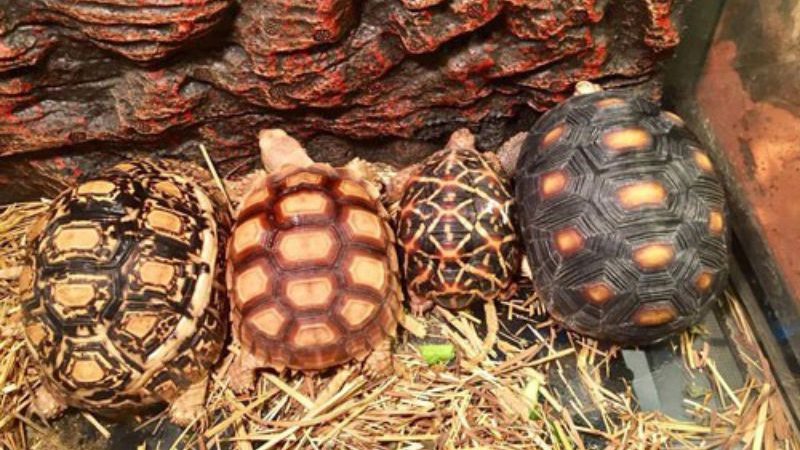 Terrestrial turtle enclosure
Terrestrial turtle enclosure
In terms of care, feed your turtle once a day with fruits and vegetables like papaya and watermelon. However, each species of terrestrial turtle has its own dietary preferences, so be sure to do your research or consult the seller.
Caring for Aquatic Turtles
Aquatic turtles such as the three-keeled pond turtle, red-eared slider, and crow-marked turtle are great choices for home aquariums. The cost of feeding aquatic turtles is generally lower than that of terrestrial turtles, but their housing requirements are more complex as they need clean water without chlorine.
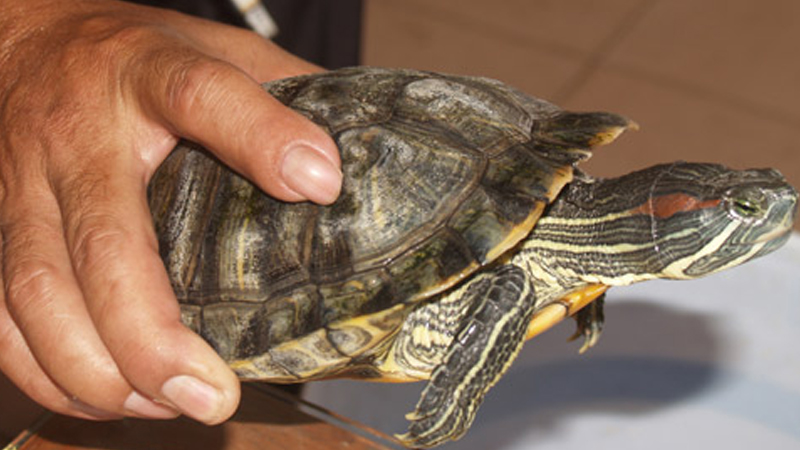 Red-eared Slider
Red-eared Slider
Most aquatic turtles can be kept in the same tank as fish, except for the red-eared slider, which is an omnivore and may harm the fish. As mentioned, aquatic turtles are typically omnivores, eating fruits, vegetables, and meat. You can purchase their food from pet stores specializing in aquatic turtles.
 Aquatic turtles are omnivores.
Aquatic turtles are omnivores.
Additionally, aquatic turtles are susceptible to colds, exhibiting symptoms like difficulty breathing and watery eyes and nose. Ensure they live in a warm environment, and regularly clean their eyes and nose. Also, maintain a clean and odor-free tank by performing regular water changes.
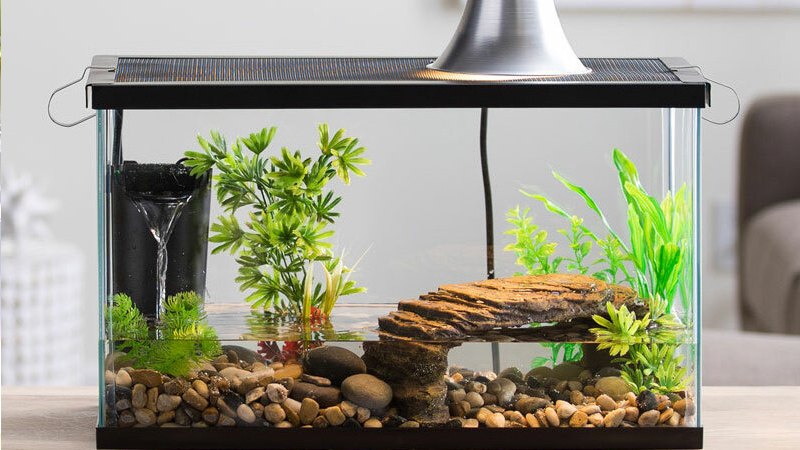 Regularly clean the tank to prevent odor and maintain a healthy environment for your aquatic turtle.
Regularly clean the tank to prevent odor and maintain a healthy environment for your aquatic turtle.
Importantly, for omnivorous turtles like the red-eared slider, do not release them into the wild as they can negatively impact the surrounding ecosystem.
This article has provided essential information about feng shui turtles and the considerations for keeping them as pets. We hope this knowledge will benefit you in the future. Wishing you all the best.


































